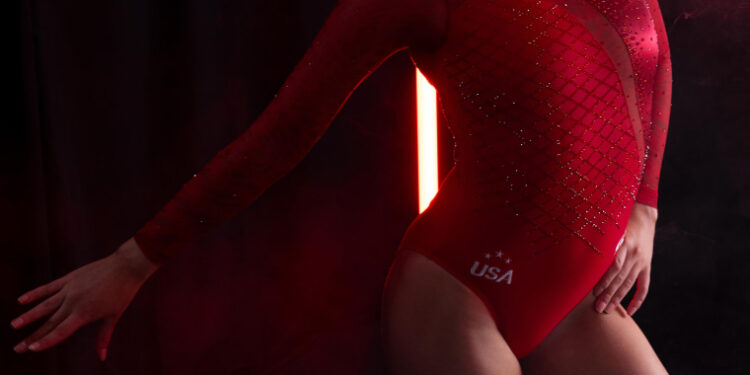When Simone Biles raises her arms to salute the Olympic judges in Paris this summer, she will be wearing nearly 10,000 hand-placed crystals weighing almost a pound.
Gymnastics leotards are expected to reflect grit and grace, withstand triple-twisting double flips and stand up to the bright spotlight of the Olympic Games.
Much like the intensive training process leading up to the Games, creating show-stopping Olympic leotards is a rigorous and all-consuming undertaking.
Jeanne Diaz, the design director at GK Elite, the official leotard manufacturer for the U.S. Olympic team, began working on the Paris Olympics leotards more than two years ago.
It all started with collecting feedback from the gymnasts in contention.
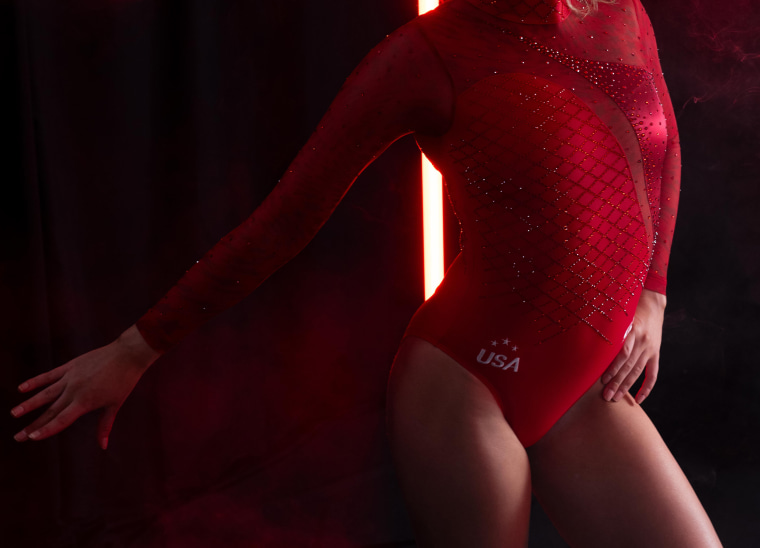
“They overwhelmingly, unanimously told us that for the Olympics, they want to wear red, white and blue. … The more crystals, the better,” Diaz said.
The design team then created mood boards centered on three thematic threads: American womanhood, opulent femininity and chic shimmer and shine.
Each theme was grounded in stylistic imagery, including ’80s fashion, the stars of the American flag and Parisian haute couture.
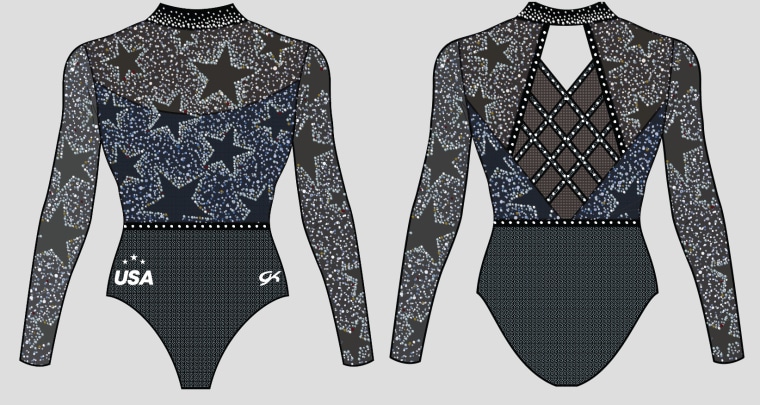
Diaz described the design process as a “high-fashion take on what’s typically a sportier approach to leotards,” grounded in American iconography.
“We really connected the designs to Paris as the host city,” Diaz said. “Paris is known to be the fashion capital of the world, and we know all eyes are on Team USA, so we made sure that we had that cohesion of fashion throughout but also that the whole collection was unmistakably Team USA.”
The most overtly patriotic leotard in the collection is typically reserved for the Team Final, in which the U.S. women hope to contend for gold on July 30.
The Go for Glory design, which the U.S. women are expected to wear in the Team Final in Paris, aims to capture the “radiant moment when an athlete, draped in the flag, transcends to become a symbol of triumph.”
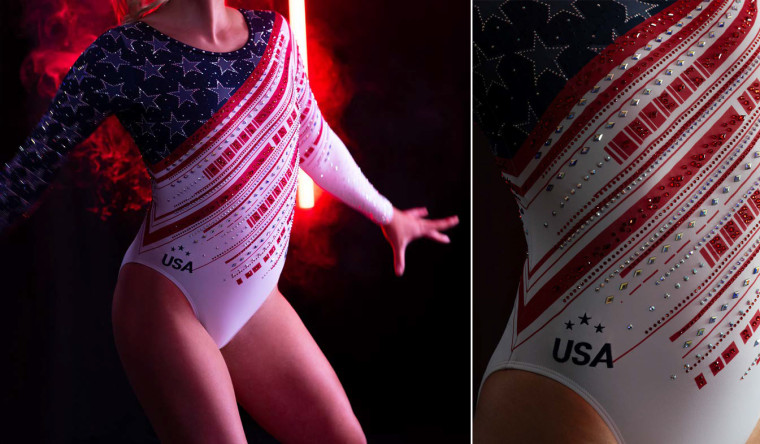
The leotard is adorned with 9,929 meticulously placed crystals cut into diamond shapes, weighing nearly a pound.
Adding the beads is the most time-consuming phase of manufacturing, and it must be approached with precision to ensure that crystals do not come loose while the gymnasts are competing.
“Wait, this is beautiful,” Biles said of the leotard after unboxing it on NBC’s “TODAY” show. The five-member women’s gymnastics team, as well as the two alternates, opened their leotards alongside Biles to many squeals of excitement.
The Team Final design pays homage to the iconic leotard the “Magnificent Seven” wore at the 1996 Olympic Games in Atlanta. That was the first U.S. women’s gymnastics team to win Olympic gold.
“Walking into competition with that power behind you is really what we were wanting the athletes to feel,” Diaz said.
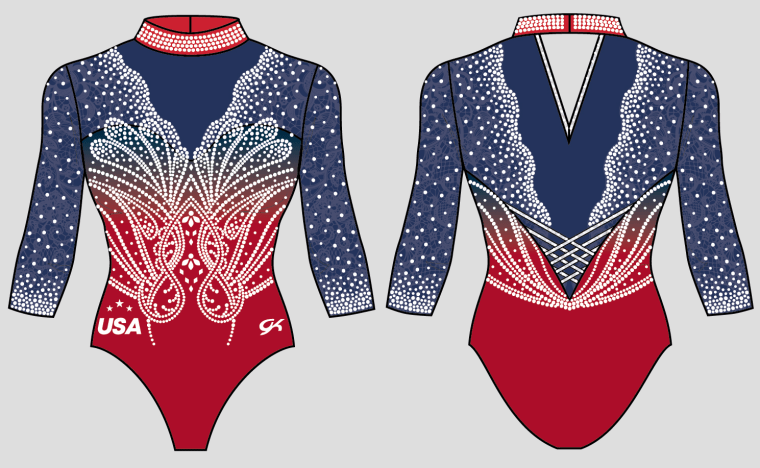
Another Olympic design, the USA Elegance Competition Leotard, synthesizes the “finesse of gymnastic flair and French couture.”
It features patriotic red and navy ombré, as well as over 5,000 crystals, including shaped diamonds and crystal flames, evoking the “competitive fire” of the athletes.
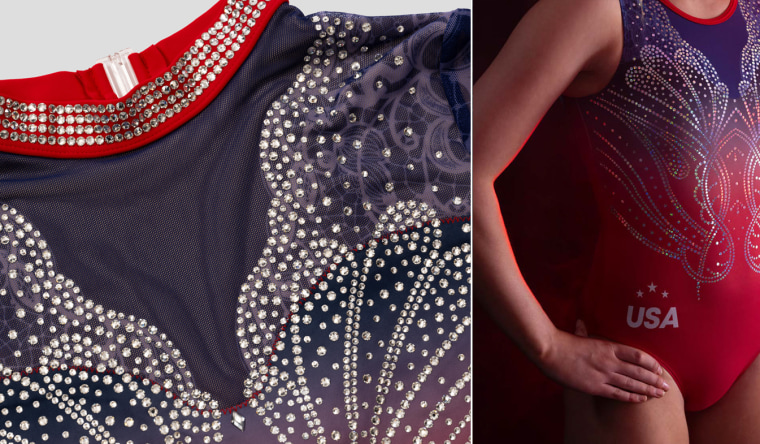
The corseting details and zigzag trim are a nod to Parisian fashion and an intentional fusion of artistry and athleticism.
Each long-sleeve competition leotard is accompanied by a short-sleeve replica for training sessions.
The Sovereign Sparkle design evokes Independence Day fireworks while simultaneously emulating Paris at twilight and the Eiffel Tower.
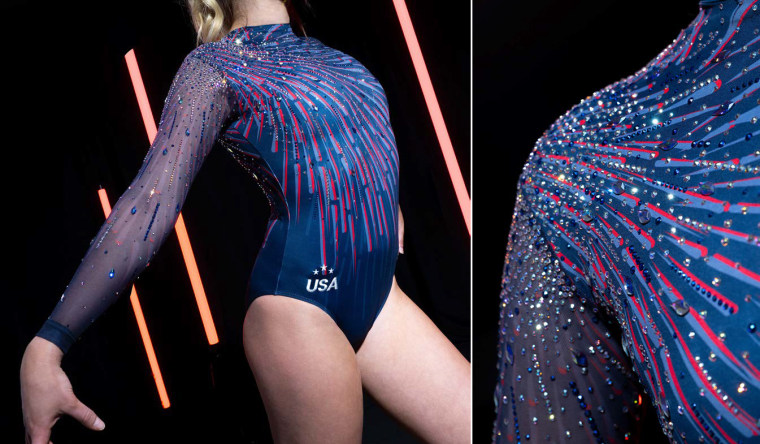
“Paris is the city of lights,” Diaz said, “So we took a tonal approach to those designs and let the inspiration be a play on light with matte and shine contrast and tonal elements.”
The American Anthem Leotard was inspired by the art nouveau movement, which highlights sinuous lines and dynamic illustrations. The leotard is intended to guide the eye upward toward the face, enhancing the performance quality of gymnasts on the floor exercise.
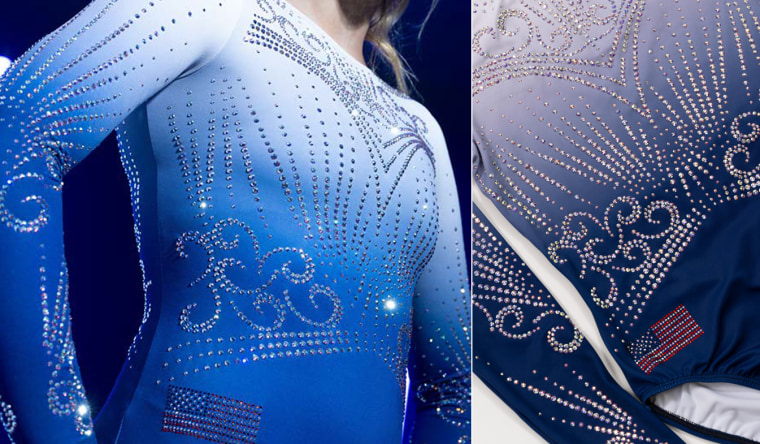
The Luminous Legacy Leotard also synthesizes high fashion and American valor. Its color palette emulates the night sky and features a constellation of over 10,000 Swarovski crystals.
The bodice consists of a star-spangled banner pattern and a line of crystals forming abstract stripes along the sleeves.
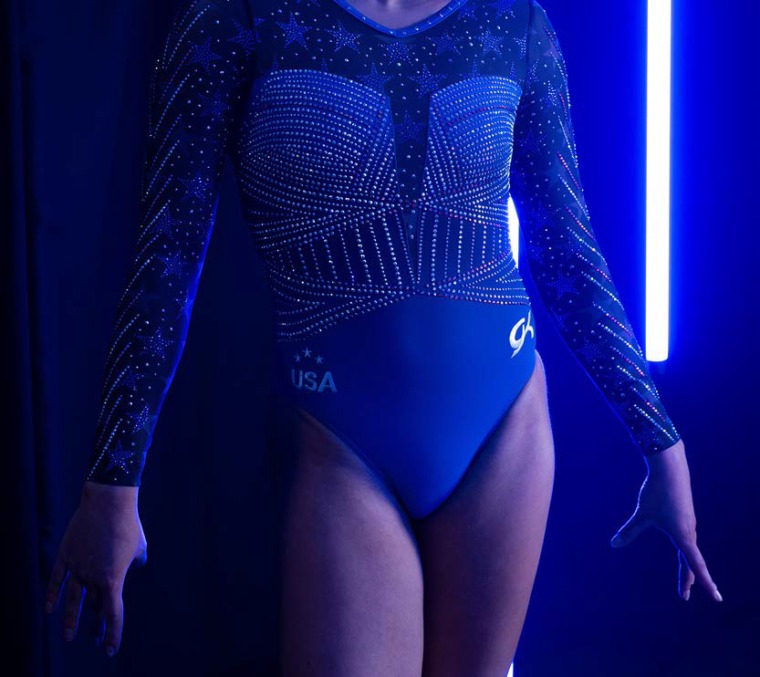
Seeing the gymnasts step onto the Olympic stage both wearing and embodying the culmination of years of work “never gets old,” Diaz said.
“It’s all made in the United States, and we’re watching these amazing athletes perform in garments that we’ve spent countless hours pouring our passion into,” she said. “I can’t put into words how proud we all are.”

